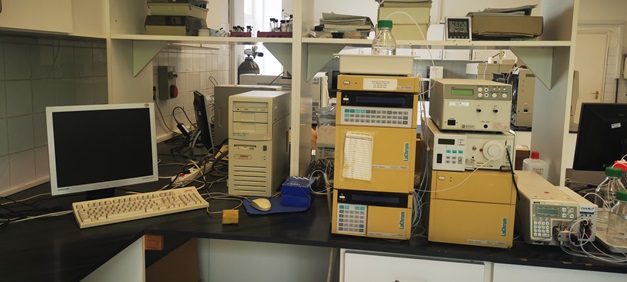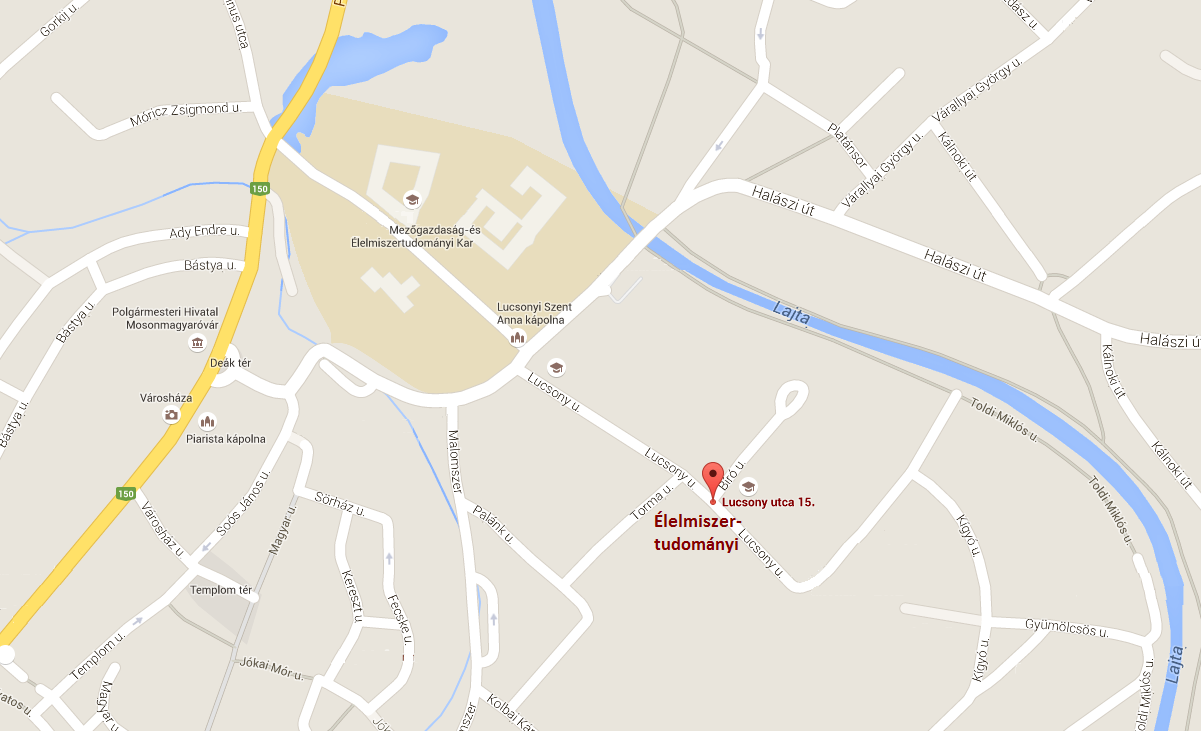Laboratories
Food Technology Laboratory
1. Pilot-scale milk processing plant
This small-scale manufacturing unit has the capacity to process up to 100 liters of milk per day,
producing a variety of dairy products such as consumer milk, yogurts, kefirs, cottage cheese,
as well as fresh and semi-hard cheeses. The finished products can be utilized for research purposes or made to order. The plant also offers workspace and equipment for student internship programs related to food engineering courses, as well as providing opportunities for conducting thesis experiments.
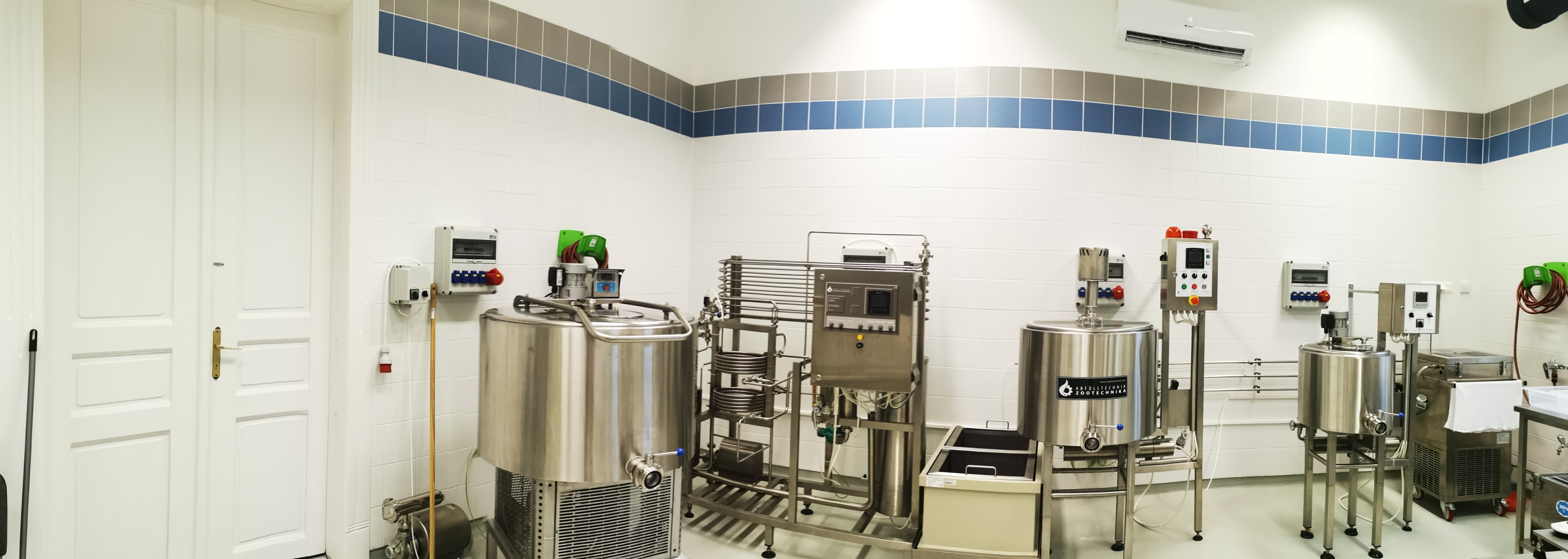
2. Pilot-scale plant for fruit processing and pálinka distillation
Located at the Department, this pilot processing unit is capable of producing various vegetable and fruit-based products. The setup provides students with a unique opportunity to observe the entire production line on-site, from washing raw materials to packaging finished products. In addition, the lab enables the production of preserved food commodities such as jams, pickles, and preserves, as well as soft drinks and alcoholic beverages with available equipment. Similar to the milk manufacturing unit, this plant also supports internship programs, thesis projects, and product development.
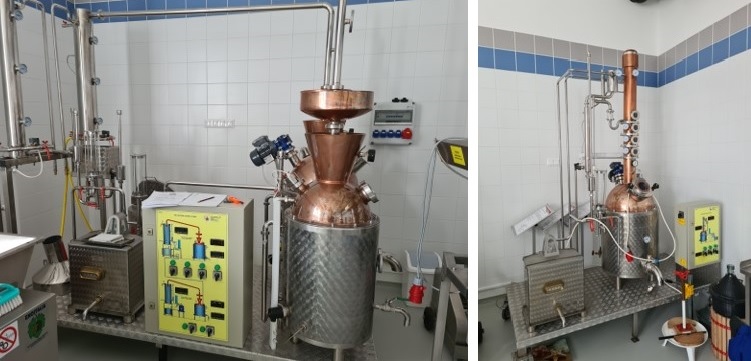
Food Sensory Laboratory
This laboratory is designed to help students learn various sensory analysis and evaluation techniques for food products and beverages. In addition, organoleptic tests are frequently conducted for thesis projects.
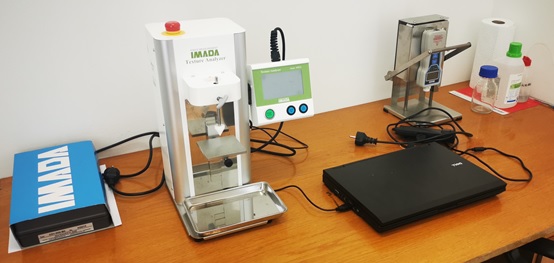
Medicinal plant garden
Located behind the Department building, the small garden cultivates several medicinal and aromatic plants, such as oregano, marigold, and peppermint. These herbs are utilized as important raw materials for educational and research purposes.

Food and Water Testing Laboratory
The Food and Water Testing Laboratory provides exceptional conditions for project works and assignments from the industrial sector. In addition to classical and molecular biology-based microbiological testing of food, feed, water, and air samples, the laboratory also performs rheological (i.e., viscosity, density, etc.) tests, chemical composition (i.e., dry matter, foreign water, alcohol, sugar content, etc.) determinations, and sensory evaluations. Furthermore, it has ample resources for modeling fermentation systems. The laboratory is classified as BSL II for safety purposes.
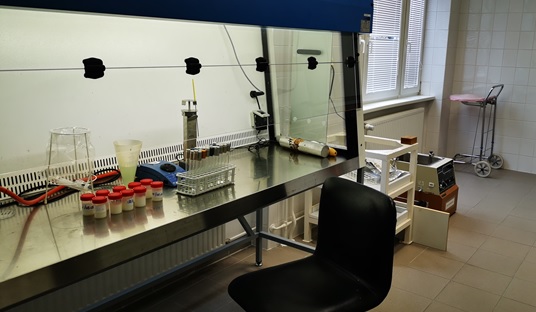
Food Analytical Laboratory
The Food Analytical Laboratory offers a broad range of analytical technologies, from simple gravimetric, titrimetric, and spectrophotometric methods to complex instrumental techniques such as GC-FID, HPLC, ICP-OES. It performs analyses on agricultural and food samples. The laboratory is equipped to conduct general proximate analysis, determine total polyphenol and total antioxidant contents, and analyze the organic acid and sugar compositions of various food and agricultural matrices. In addition to routine chemical analyses, such as pH determination, it is also involved in educational and research activities in the field of food engineering, such as Food Chemistry and Food Analytics Laboratory Practicals.
